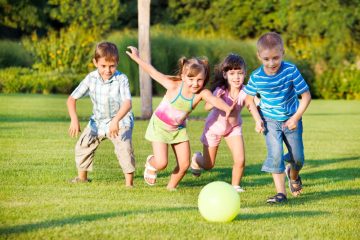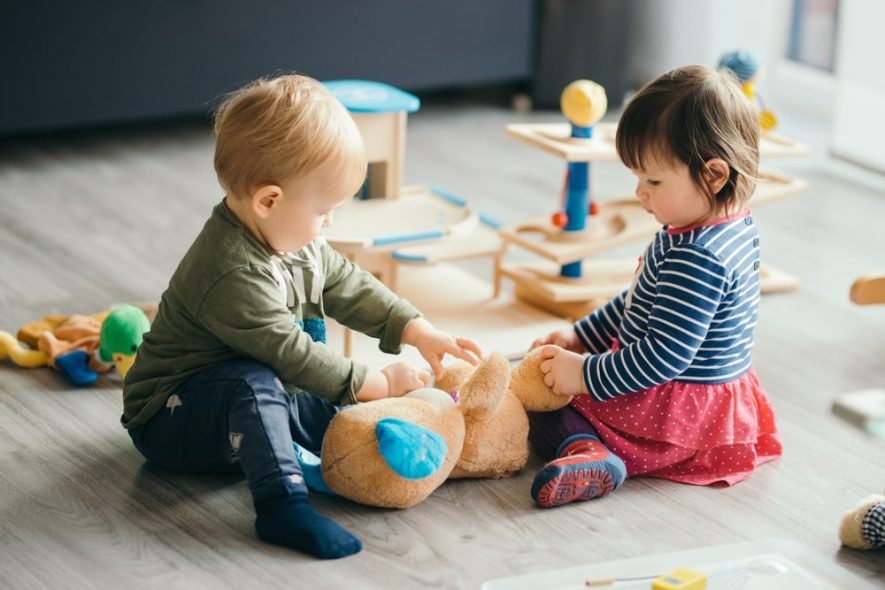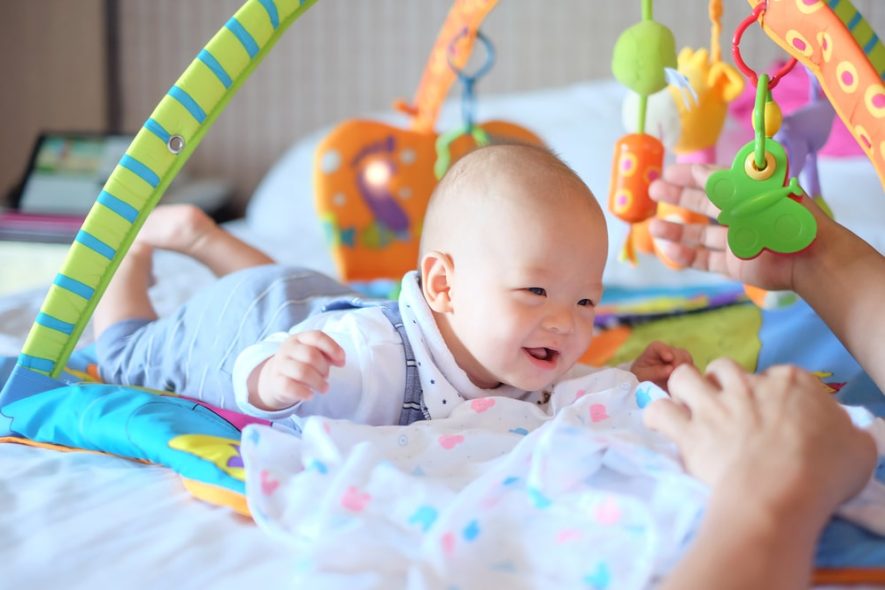
Playtime is the way children interact with the things around them. Coincidentally, it’s also a way to learn new things. Letting your children enjoy their playtime is essential for your baby’s development, but it’s understandable to be overprotective, too.
Instead of being too strict about your kid’s playtime, let them explore.
In this article, we’ll dive into the different benefits of playing with your baby, and share some tips to help parents maintain a safe space their kids can enjoy.
The Many Benefits of Infant Playtime
During the first year, your kid’s brain development is rapid and grows twice its size. This growth means there are at least a million new neural network connections that allow young children to learn new things and develop new skills.
When it comes to playing experiences for kids, there is no right or wrong way. Reading a book, singing songs, and playing outside—all of them are beneficial for your kids. Here are more reasons why letting your kids play is a good idea.
Heightens Their Cognitive Functions
Many studies have already shown that playing fosters brain development. Unstructured play is best for developing your kid’s cognitive function. It allows your kids to play by their own rules, not limited by an adult’s instructions. Unstructured play makes little kids think, strengthening the connection among the neurons and developing the brain’s prefrontal cortex.
For example, toy blocks in different shapes promote problem-solving skills. Even a simple walk around the house is good for brain development. When your kids think about how to get from one place to another, their problem-solving skills are put to the test.
Helps With Their Speech Development
It will take at least two years before your kids talk in complete sentences and converse with other people. But before your kid’s first birthday, speech is already developing. You can observe that when you talk to your kids, they will respond with sounds or coos.
They may not answer with actual words, but they are conversing with you and it is a good sign of language development. Playtime examples that can accelerate your kid’s speech are reading a story aloud, singing songs, and reciting nursery rhymes.
Provides Emotional and Social Development
When kids play, it encourages them to interact with the members of the family and other people. Interacting with new people is challenging for kids at a young age. When they start playing, they will prefer to play on their own. However, playing will allow them to interact socially.
You can start by playing with them. Young babies find it hard to trust other people, so playing with parents will set the tone for their social interactions. You can always bring them to a daycare so they can interact with children their same age. Don’t force them to mingle with other kids immediately. Let them join the play when they feel comfortable.

Encourages Independence
Baby playtime gives a new perspective to your kids. The world around them is enormous, and they are used to parents guiding them in their actions. They will be doing everything for the first time, which can be frightening for them. However, playtime also promotes independence.
A kid’s first bike ride is an excellent example of active play promoting independence. It is a significant turning point in their developmental years, and is also challenging and scary. Children will always think they will fall or hurt themselves. But with the proper guidance from parents and the right encouragement, once your kids brave their first bike ride, it will boost their self-confidence and independence.
Develops Physical Fitness
Whether you’re an adult or a child, exercise is beneficial for your overall health. Playing tag, riding a bike, taking walks in the park with the family, swimming, or even tummy time has physical benefits for your kids. Of course, you cannot subject your kids to rigorous exercise regimens. The best way to promote their physical fitness is through play.
Remember to control how much playtime you give your kids so they don’t grow overly tired. While playing is important for physical conditioning, overdoing it can also result in injury.
Safety Tips for Children During Playtime
Accidents can happen, especially to kids. One moment they’ll be having fun, and in the next, they could stumble—leading to wails and a ruined day. Don’t worry, parents! There are ways you can keep your kids safe while they play. Take note of these safety tips!
Use Proper Safety Gear
You can never be too cautious with protective equipment. If your kids play sports with physical contact, gear like helmets, knee pads, and elbow pads will keep them protected. Depending on what type of play, there are several items you can use.
On the other hand, very young babies will start playing inside the house. You can ensure their safety by installing play mats in their play area. You can also babyproof the house to ensure that the indoors are safe for your kids to play in.
Always Supervise Your Kids
It is important for parents to always keep an eye on their children to ensure their safety and well-being. Leaving children unattended while playing can be incredibly risky. Children can be unpredictable and engage in dangerous behavior without realizing the risks involved.
Moreover, playtime is designed to provide fun and entertainment, but it can also be a place where accidents happen. Children may fall or get hurt. Therefore, it is crucial to always remain vigilant and present while children are playing to prevent any potential injuries or harm. Remember, a moment of inattention can have serious consequences, so it is important to prioritize safety and keep children within sight and reach.
Keep Them Hydrated
Keeping kids hydrated while playing is crucial to their health and well-being. Children playing sweat and lose fluids, and if those fluids are not replaced, dehydration may occur. Dehydration can result in a number of symptoms, such as weariness, headaches, and dizziness. In extreme circumstances, it can also result in heatstroke. Parents should encourage their children to drink plenty of fluids, particularly water, before, during, and after playtime to prevent dehydration.
By prioritizing hydration, parents can ensure that their children stay healthy and happy while playing. Providing easy access to water bottles and ensuring they are regularly refilled can help children stay hydrated. Additionally, parents can offer fruits and vegetables with high water content, such as watermelon or cucumber, to provide extra hydration and nutrients.

Ready, Set, Play!
Playtime is an essential part of childhood that provides numerous benefits to children’s physical, emotional, and social development. Playtime promotes physical activity, enhances cognitive skills, and fosters social development. Through play, children can explore the world around them, learn new skills, and express themselves creatively.
Additionally, playtime allows children to experience joy, freedom, and independence, which can boost their self-esteem and confidence. By encouraging and prioritizing playtime, parents can help children develop into healthy, well-rounded individuals who are equipped with the skills they need to navigate the world around them.
If you’re looking for premium quality toys, visit our shop. We have baby bikes, playpens and play mats for your little ones. Browse our collection and shop with us today!



